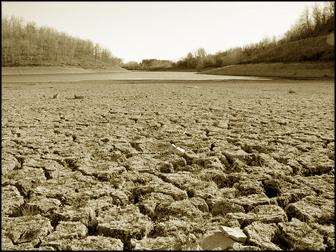|
Climate change:
Sri Lanka’s perspective
 |
|
Dr. Palitha Kohona |
The time for dilly-dallying over the question of climate change is
over.
Scientists from around the world have agreed that climate change is a
reality.
The Inter-Governmental Panel on Climate Change, consisting of 4,000
experts, demonstrated in 2007 that human-induced factors are
relentlessly driving the increase in the global temperature.
In his address at the Inter-Governmental Panel on Climate Change on
October 7, Ambassador Dr. Palitha Kohona, Sri Lanka’s Permanent
Representative at the United Nations said:
“The 2006 Stern Review concluded that global warming would damage the
global GDP by over 20 per cent. Humans have pursued greater material
gain and in the process caused serious damage to our natural environment
and contributed to global warming. If we allow this trend to continue,
we are likely to cause irreversible damage to the global climate and
also progressively make life difficult, if not impossible, for future
generations. Our actions are causing our planet to become unlivable. We
are evicting ourselves from our only home.
“We are already experiencing unusual weather patterns, serious and
prolonged droughts, unusual rainfall, frequent and severe cyclones and
hurricanes, massive flooding, landslides, reduction of the permafrost,
glacier retreat and the progressive melting of the polar ice caps. These
developments are likely to combine to tilt the delicate balance of the
global environment in such a way that human existence itself might be
challenged seriously. In my own country, we have begun to note changes
in weather patterns that have affected agricultural cycles and a greater
incidence of insect populations and insect-borne deceases.
“In the South Asia region, it is likely that sea level rise will
result in the inundation of vast tracks of coastal areas and river
estuaries affecting coastal habitations, the tourism industry and
coastal fisheries.
The death of coral reefs will affect fisheries, on which millions
depend. It is also likely that surface water resources will become
contaminated with vast areas becoming uninhabitable. Millions will be
affected. A flood of refugees of a different nature, environmental
refugees, will result from this. These refugees will be forced to seek
homes elsewhere.
 |
|
Tropical rain forests such as
Sinharaja are a major carbon absorption mechanism. |
“The threatening developments that worried us in 2002 have continued
unabated. As we head for Copenhagen, much doubt remains about our
resolve to deal with the threat of climate change adequately. We waste
our time on sophisticated arguments and clever formulations as the
future of our children becomes threatened on a daily basis.
Greenhouse gases
“I note with a degree of satisfaction, the commitments undertaken by
the G-8, whereby the need to arrest global warming and to curtail the
emission of greenhouse gases was recognized. This was a very welcome
development, in particular, the commitment to reduce developed country
emissions by 80 per cent by the year 2050. The major developed countries
have brought challenging proposals to the table. However, given the
gravity of the challenge, it is still uncertain as to whether these are
adequate. There is no doubt in my mind that the world is in this
dangerous predicament today, due to the unsustainable development model
adopted by the developed countries since the Industrial Revolution due
to ignorance and sheer greed and rapaciousness. They pursued profit and
higher living standards to the exclusion of all else.
“The enlightened man’s enlightenment extended only so far. Developed
countries in their rush to development burned fossil fuels in huge
quantities, ravaged their life-giving forests, polluted their rivers and
the ocean, and in the process, acquired enviable standards of living.
They also occupied the carbon space of other countries without consent
and, in the process, ran up a massive carbon debt. Unfortunately, all of
us in the developing world, being subject to normal human frailties,
also aspire to similar standards of living and creature comforts. But,
if developing countries were also to follow the same model of
development, there is no doubt that the global environment will be
rendered unsustainable. As we strive for a more comfortable life, we
will also make our world an unlivable desert. There seems to be only one
solution - and that does not involve demanding that the developing world
arrest its aspirations to improve the lives of its people. People in the
developing world also must be permitted to acquire the comforts of life
which are now taken for granted in the developed world, but they must do
so in a sustainable manner.
“Technology exists today which would enable all of us to improve our
living standards without causing irreversible damage to the environment.
However, this technology is expensive and complicated. For example,
power generation, though cheap through the use of fossil fuels, could
also be done through more sophisticated and expensive technology using
solar power, or the ever-present wind and other renewable resources. In
Sri Lanka 40 per cent of the energy is generated from bio-fuels.
Ozone layer
“I would like to leave with you a simple thought gleaned from the
successful Montreal Protocol to the Vienna Convention on the Ozone
Layer, pursuant to which developed countries undertook to provide
funding to enable developing countries to utilize ozone-friendly and
sophisticated technologies and substances. These technologies were also
obtained from the developed world.
The use of technologies harmful to the ozone layer was to be phased
out.
“We all know that this is a very successful environmental convention.
At a practical level, a cause of skin cancer and eye cataracts, mostly
in developed countries, may have been reduced. The ozone hole in the
South is closing. We could use the same model in order to address the
threat of global warming and climate change while enabling the
developing countries to achieve some of the same comforts of life that
are taken for granted in the developed world.
“However, this would mean providing necessary funding for developing
countries to adopt technologies that are environmental-friendly. So that
they could continue to develop without significantly contributing to
global warming in the process. We must also not forget the need to
adjust our habits. Developed countries will also be required to adopt
policies curtailing the wasteful use of energy and the conservation of
resources.They must drastically reduce their emission levels.
 |
|
Prolonged droughts are
more common now |
“Measures need to be put in place to help countries to adopt policies
to address the immediate consequences of climate change. For some the
threat is immediate.
The climate adaptation fund must be strengthened considerably.
The climate adaptation fund will enable poor developing countries to
adopt measures to address the consequences of climate change in the
immediate future. The positive tone adopted by the G-8 on adaptation
measures is encouraging.
Rain forests
“From our own perspective, it is recognized that tropical rain
forests are a major carbon absorption mechanism. Deforestation is
responsible for approximately 20 per cent of carbon emissions of the
world. If we are to preserve these forests and also avoid 20 per cent of
carbon emissions, sufficient incentives must be provided to those
countries which host these forests, to maintain them. Though a small
island, over 20 per cent of Sri Lanka is still under forest cover. We
strongly believe that these forests are a resource for us, but if this
resource is not to be utilized for our development, then practical
measures must be made available to preserve them. May I suggest that one
possibility is to ascribe a carbon value to these forests to enable the
carbon value of forests to be traded in the global carbon market?
“The time has come to make a commitment that we will cease to discuss
this problem in a theoretical manner at endless conferences and begin to
adopt practical measures. It is the future of our children that is at
stake. We must leave behind a livable world for our children and their
children.
(Courtesy: Asian Tribune)
|

